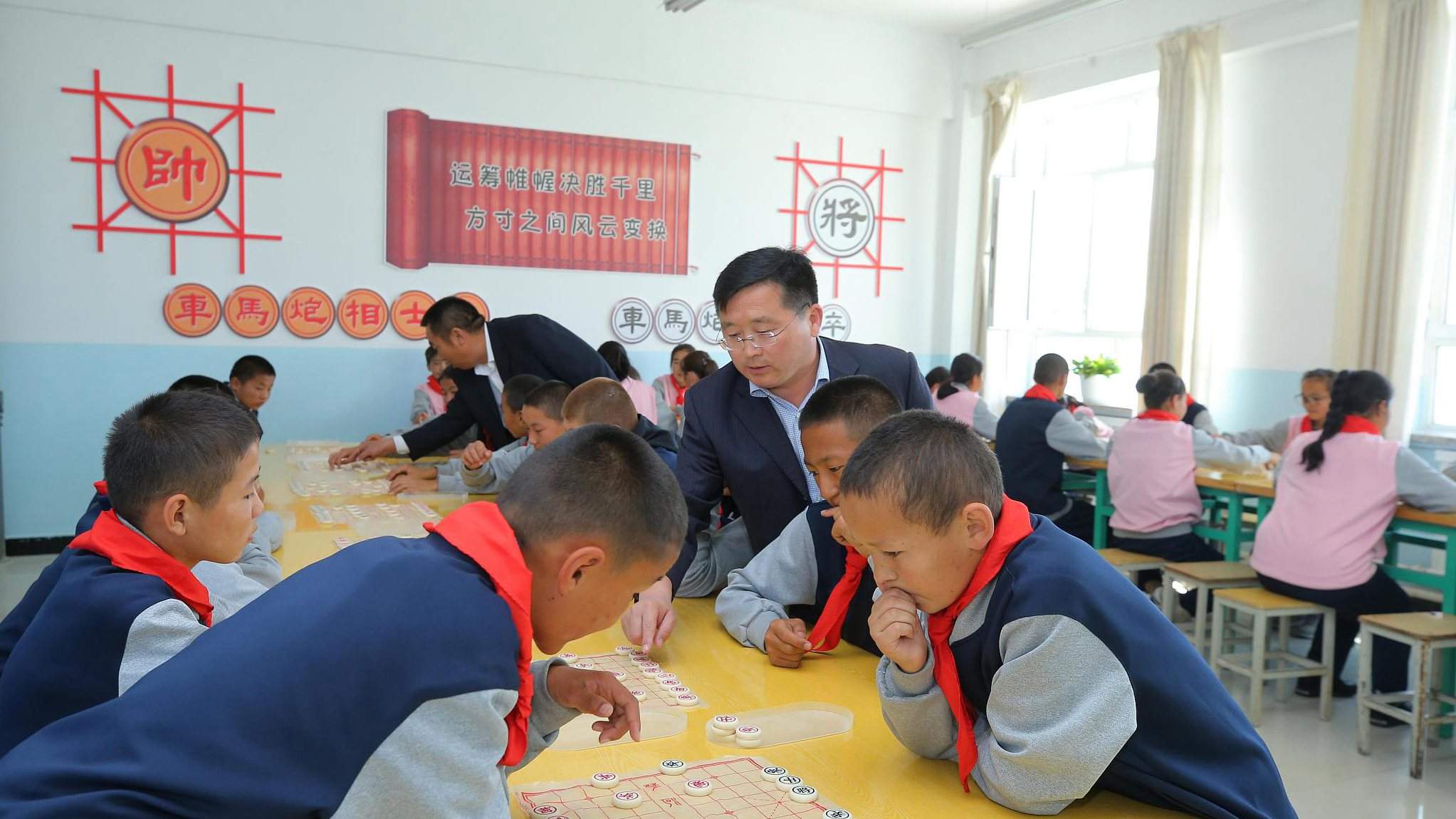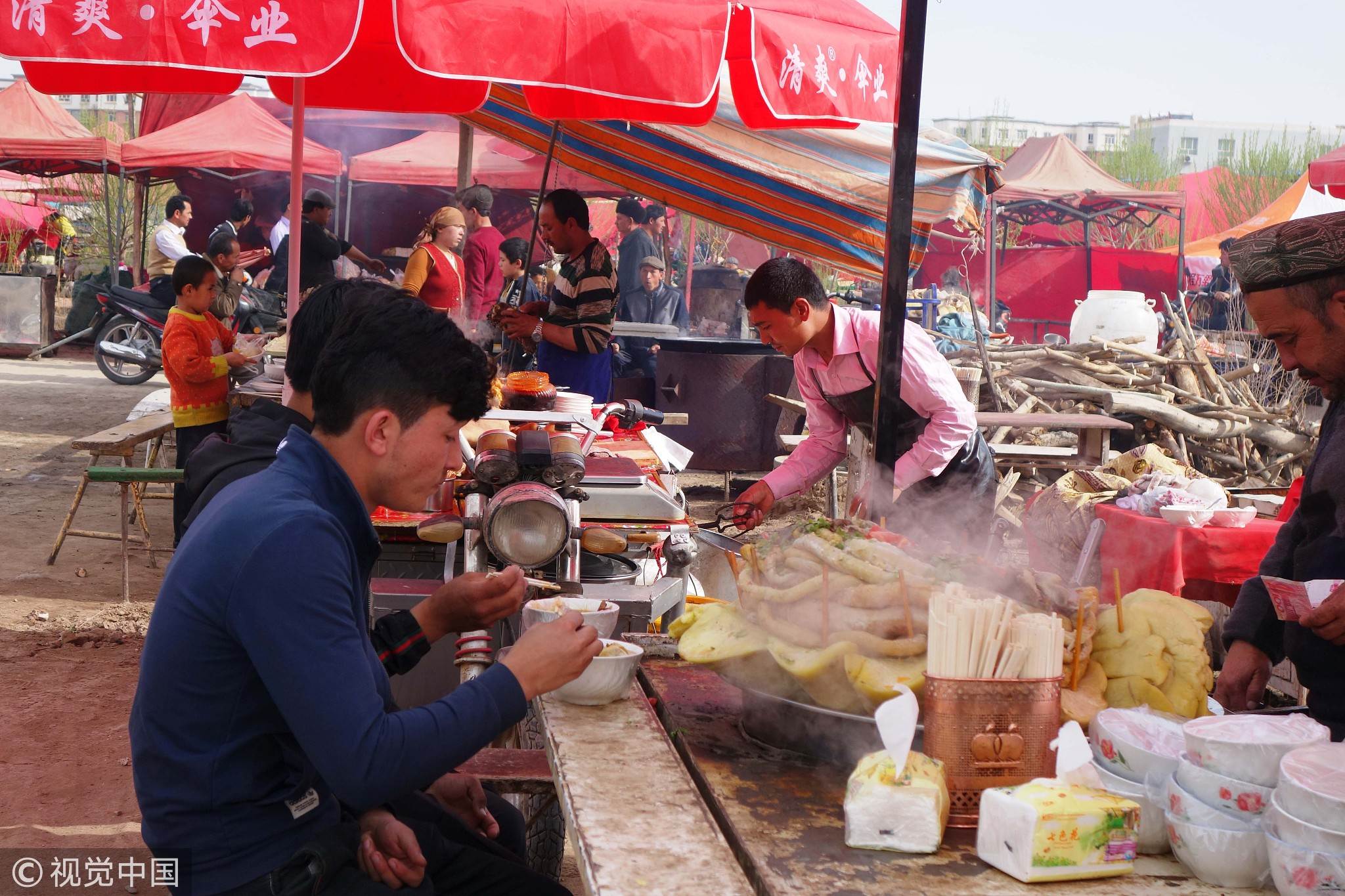
Opinions
10:08, 18-Oct-2018
Opinion: Vocational programs in Xinjiang help fight extremism
Updated
09:59, 21-Oct-2018
Kong Qingjiang

Editor's note: Kong Qingjiang is the dean of the School of International Law under China University of Political Science and Law. The article reflects the author's opinion, and not necessarily the views of CGTN.
One of the obstacles for the economic and social development in northwest China's Xinjiang Uygur Autonomous Region is the lack of a skilled workforce. The low technical skills and poor Mandarin levels of the locals are affecting their employability.
Unavailability of skilled workers hampers the economic restructuring and upgrading in the resource-rich region. As a result, the local economy remains at the lower end of the value chain.
The inadequate technical and vocational training is largely the culprit behind these problems. Having recognized this, governments at various levels in Xinjiang have taken measures to increase the technical and vocational training opportunities for local people over the years.
The World Bank has even extended loans to a Xinjiang-based technical and vocational training project to upgrade its facilities across the region and modernize its material, including the curriculum, in the early 2000s.

A shop owner in Urumqi, Xinjiang Uygur Autonomous Region, China, September 20, 2018. /VCG Photo
A shop owner in Urumqi, Xinjiang Uygur Autonomous Region, China, September 20, 2018. /VCG Photo
Few in Xinjiang have not been exposed to vocational training, but many are reluctant to take that educational path.
The willingness to learn is intertwined with religion, research has shown, with the ideologies of certain religious entities, especially extremist ones, impacting educational attainment.
To address the problem and make training services available to a vast number of laborers or prospective laborers in Xinjiang, local authorities have taken initiatives to engage local residents in technical and vocational training.
In addition to honing their skills, programs aimed at improving local people's literacy in Mandarin, the country's official language, have been rolled out, along with classes to increase their basic legal knowledge.
This reminds us of the remarkable story of the British missionary Samuel Pollard, who went to Weining County, at the border of Yunnan and Guizhou provinces 100 years ago and educated the indigenous Miao people. It was his role in local education that has helped transform the mountainous village from a primitive place into a "land of civilization" in the early years of the 20th century.

A local food market in Yengisar County, Xinjiang Uygur Autonomous Region, China, April 2, 2017. /VCG Photo
A local food market in Yengisar County, Xinjiang Uygur Autonomous Region, China, April 2, 2017. /VCG Photo
Given Xinjiang people's diligence and vision, and the region's abundant resources, we have every reason to believe that the well-planned technical and vocational education programs will in the near future transform the economic and social landscape of the westernmost part of China.
Unfortunately, vicious assaults have taken place owing to misunderstandings and the ignorance of some.
Without an understanding of the situation on the ground, they slander the vocational training program as religious oppression towards the Uygur ethnic group. They jump on the fact that most of the trainees are ethnic minorities and then deliberately twist the good intentions behind the program into something malicious.
The majority of the trainees are Uygur compatriots, some of whom might be susceptible to religious extremism and vulnerable to economic hardship arising from their little skills and low employability.
It is these people who need more guidance and assistance. Being able to receive such training will boost their well-being in the long run. On the contrary, denying people from access to such programs will do nothing but make them more susceptible to the influence of religious extremism.
(If you want to contribute, please contact us at opinions@cgtn.com.)

SITEMAP
Copyright © 2018 CGTN. Beijing ICP prepared NO.16065310-3
Copyright © 2018 CGTN. Beijing ICP prepared NO.16065310-3